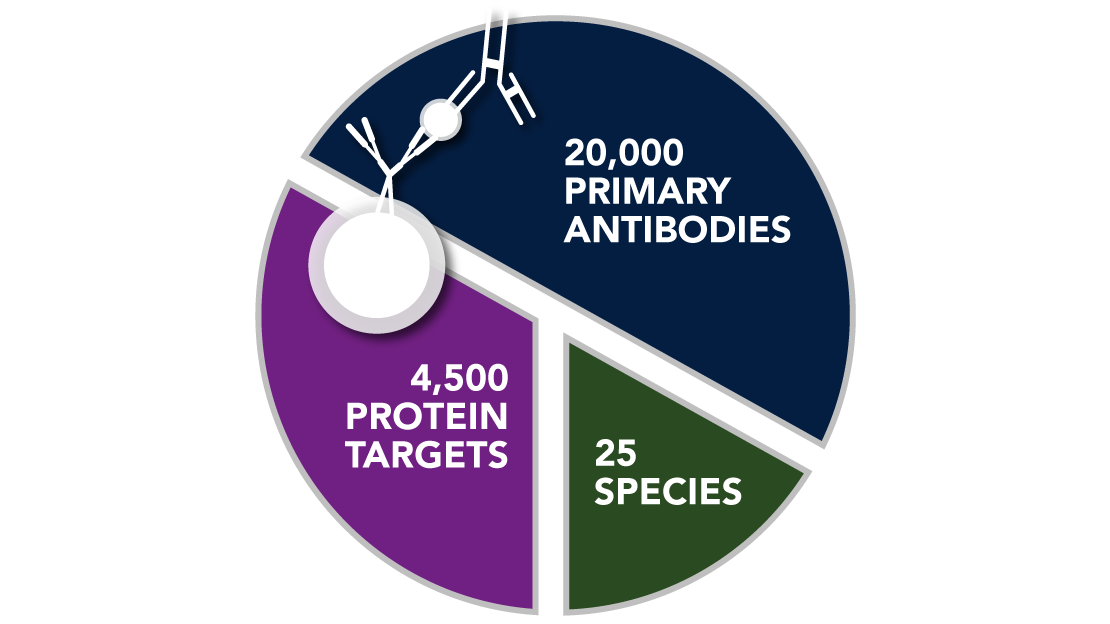Introducing the R&D Systems™ Luminex® Metabolic Performance Panel
To assist investigators, R&D Systems, a Bio-Techne brand has developed the Human Metabolic Luminex Panel (Catalog # FCSTM19). This flexible, premixed, panel can be configured to quantify up to 12 metabolic biomarkers per 50uL sample in less than a day, which is faster than the competition. The Luminex metabolic panel saves time and precious sample, thus expediting your workflow.
Metabolic Syndrome describes a cluster of metabolic abnormalities that includes hypertension, central obesity, insulin resistance, and atherogenic dyslipidemia1. Whether these abnormalities emerge from common pathogenesis or not remains unclear. The etiology of Metabolic Syndrome includes lifestyle factors2 as well as genetic and environmental factors. Metabolic Syndrome is associated with an increased risk for atherosclerotic cardiovascular disease and diabetes. It is apparent that Metabolic Syndrome involves the complex interplay of many metabolic biomarkers such as hormones and cytokines. Finally, the prevalence of Metabolic syndrome is trending upward, particularly in young adults3. There was a statistically significant increase in the prevalence of metabolic syndrome in young adults ages 20-39 from 2011 to 2016. As such, metabolic biomarker research is required to understand its mechanisms so that the looming public health crisis can be averted.

Luminex Metabolic High Performance Features:
- Measure up to 12 metabolic biomarkers simultaneously
- 4.5 hour assay length, no overnight incubation
- Rigorous quality control testing for consistent and reliable data
- Small sample volume (50ul)
Metabolic biomarker sensitivity and precision is shown in Table 1. Assay precision includes the intra-assay coefficient of variation (CV) and inter-assay CV. The intra-assay CV and inter-assay CV are an estimate of variability within and between assays respectively. Assay CV should be less than 15%. As seen in table 1, the R&D Systems metabolic panel meets this precision standard, indicating that the panel is consistent and reproducible.
Table 1. List of metabolic biomarkers, sensitivity, and precision.
Metabolic Biomarker |
Type of Analyte |
Sensitivity (pg/ml) |
Intra-assay CV (%) |
Inter-Assay CV (%) |
|
Active GLP-1 |
gut hormone |
0.833 |
5 |
9 |
|
Active Peptide YY |
gut hormone |
1.39 |
4 |
8 |
|
CCL2/MCP-1 |
adipokine |
0.958 |
3 |
7 |
|
C-Peptide |
pancreatic hormone |
0.578 |
9 |
13 |
|
Glucagon |
pancreatic hormone |
4.43 |
6 |
11 |
|
IL-6 |
adipokine |
0.227 |
4 |
8 |
|
IFN-Gamma |
cytokine |
0.072 |
4 |
8 |
|
Insulin |
pancreatic hormone |
1.62 |
6 |
9 |
|
Leptin |
adipokine |
22.2 |
4 |
11 |
|
Pancreatic Polypeptide |
pancreatic hormone |
53.2 |
9 |
13 |
|
TNF-Alpha |
adipokine |
0.141 |
4 |
9 |
|
Total Ghrelin |
gut hormone |
1.408 |
8 |
14 |
The R&D Systems Luminex Human Metabolic Panel Quantifies Post-Prandial Hormonal Changes in Human Plasma and Sera
To test the new R&D Systems Luminex Metabolic panel, we quantified serum and plasma metabolic biomarkers in 10 people that fasted for 12 hours. One hour after a meal, we quantified post-prandial plasma and serum analyte changes in the same people. As expected, post-prandial (1 hour) levels of C-Peptide and Insulin were elevated in serum and plasma from females (Figure 2) and males (Figure 3). Conversely, Ghrelin levels declined in post-prandial serum and plasma from females and males (Figure 4).
Figure 2a. Representative female post-prandial C-Peptide (blue) is increased in SST serum, EDTA plasma and P800 plasma relative to fasting samples (green).
Figure 2b. Representative female post-prandial Insulin (blue) is increased in SST serum, EDTA plasma, and P800 plasma relative to fasting samples (green).
Figure 3a. Representative male post-prandial C-Peptide (blue) is increased in SST serum, EDTA plasma, and P800 plasma relative to fasting samples (green).
Figure 3b. Representative male post-prandial Insulin (blue) is increased in SST serum, EDTA plasma, and P800 plasma relative to fasting samples (green).
Figure 4a. Post-prandial Ghrelin levels (blue) are decreased in SST serum, EDTA plasma, and P800 plasma relative to fasting levels (green) in representative female serum and plasma.
Figure 4b. Post-prandial Ghrelin levels (blue) are decreased in SST serum, EDTA plasma, and P800 plasma relative to fasting levels (green) in representative male serum and plasma.
The R&D Systems Luminex Metabolic Panel Eliminates False Positive Data
Avoiding false-positive data is key for assay accuracy and specificity. We eliminate false-positive data by adhering to a rigorous quality control process. We also optimize diluents so that analytes on the panel are compatible with each other.
Circulating IL-6 levels should be around 1.8 pg/ml4. The R&D Systems Metabolic panel IL-6 measurement is close to the expected value, while the competitor assay is artifactually inflated (Table 2).
Table 2. Circulating IL-6 data from R&D Systems and competitor Luminex assays. ND=not detectable
|
IL-6 |
R&D Systems (pg/mL) |
Competitor (pg/mL) |
|
Serum (1) |
ND |
78.4 |
|
Serum (2) |
1.43 |
765 |
|
Serum (3) |
ND |
ND |
|
Serum (4) |
4.22 |
450 |
|
Serum (5) |
4.22 |
ND |
|
P800 EDTA (1) |
ND |
ND |
|
P800 EDTA (2) |
2.60 |
1621 |
|
P800 EDTA (3) |
4.74 |
493 |
Linearity of dilution experiments are an excellent way to experimentally assess false positive data. In Figure 5 we see that the competition’s insulin Luminex assay fails to maintain linearity of dilution at any of the dilutions tested. Conversely, the R&D Systems insulin assay is consistently within the acceptable range of 80-120% recovery.

Five serum and three P800 EDTA samples were tested using R&D Systems and competitor metabolic Luminex panels. Fasting insulin levels should be less than 1000 pg/ml (red line)5. Fasting insulin levels are artifactually high in competitor assays but not R&D Systems Luminex Assays.

Methods: Sample Collection and Preparation
Serum Separating tube (SST) serum and EDTA plasma samples were collected from 10 donors for all experiments. The initial blood draw was collected after 12 hours of fasting. The donors were then fed a mixed meal and told to return 1 hour after finishing the meal for a second blood draw. SST samples were injected with Dipeptidyl Peptidase-4 (DPP4) inhibitors immediately after collection then allowed to sit at room temp to clot prior to centrifugation. Normal EDTA samples were injected with DPP4 inhibitors immediately after collection then placed on ice until centrifugation. Both the SST serum and normal EDTA samples were separated from the blood cells and Protease Inhibitor Cocktail I (Tocris Catalog number 5500) was added to a 1X concentration. P800 EDTA samples (BD Biosciences catalog number 366420) were drawn and placed on ice. No additional inhibitors were added to these tubes, as they contain a proprietary protease inhibitor cocktail.
Conclusions and References
Here we have demonstrated that the R&D Systems Luminex Human Metabolic Panel can be used to quantify metabolic biomarkers in human plasma and serum. This assay allows for the simultaneous quantification of 12 metabolic biomarkers in each 50 ul sample. Our Luminex assay is both faster and provides superior performance to competitor Luminex assays.
- Rochlani, Y et al (2017) Metabolic syndrome: pathophysiology management, and modulation by natural compounds. Ther Adv Cardiovasc Dis 11 215 PMID: 28639538
- Edwardson CL et al (2012) Association of Sedentary Behaviour With Metabolic Syndrome: A Meta-Analysis. Plos One 7 PMID: 22514690
- Hirode G and Wong RJ (2020) Trends in the Prevalence of Metabolic Syndrome in the United States 2011-2016. JAMA 323 24 PMID: 32573660
- https://www.mayocliniclabs.com/test-catalog/Clinical+and+Interpretive/63020
- https://www.mayocliniclabs.com/test-catalog/Clinical+and+Interpretive/6…
Metabolic Research Resources
Metabolic Syndrome Poster
Metabolic Syndrome Poster
Download or request the poster to learn more about metabolic syndrome signaling. Examine pathways relevant to the HPA axis, insulin resistance, dyslipidemia, inflammation, and more.
Solutions for Metabolism Research
Solutions for Metabolism Research
Bio-techne has an expansive selection of reagents and assays for metabolic topics such as lipid metabolism, glucose homeostasis, and energy balance. Learn more about tools for metabolism research.
Tools for Cardiovascular Research
Tools for Cardiovascular Research
Choose from a broad selection of reagents and assays for cardiovascular topics such as angiogenesis, coagulation, hypertension, vasculature, and more.
R&D Systems Luminex Assays
R&D Systems Luminex Assays
Discover and validate biomarker topics with R&D Systems Luminex Assays. Multiplex up to 50 analytes in a single sample. Save time and money.
Custom Luminex Services
Custom Luminex Services
Looking for an uncommon set of target analytes? Leverage our industry-leading Luminex assay development expertise.
Luminex Instruments
Luminex Instruments
Choose the best instrument for your Luminex experiments. Select from the Luminex® 200™ or FLEXMAP 3D®.
Luminex®, Luminex® 200™ and FLEXMAP 3D® are Registered Trademarks of Luminex Corporation.











